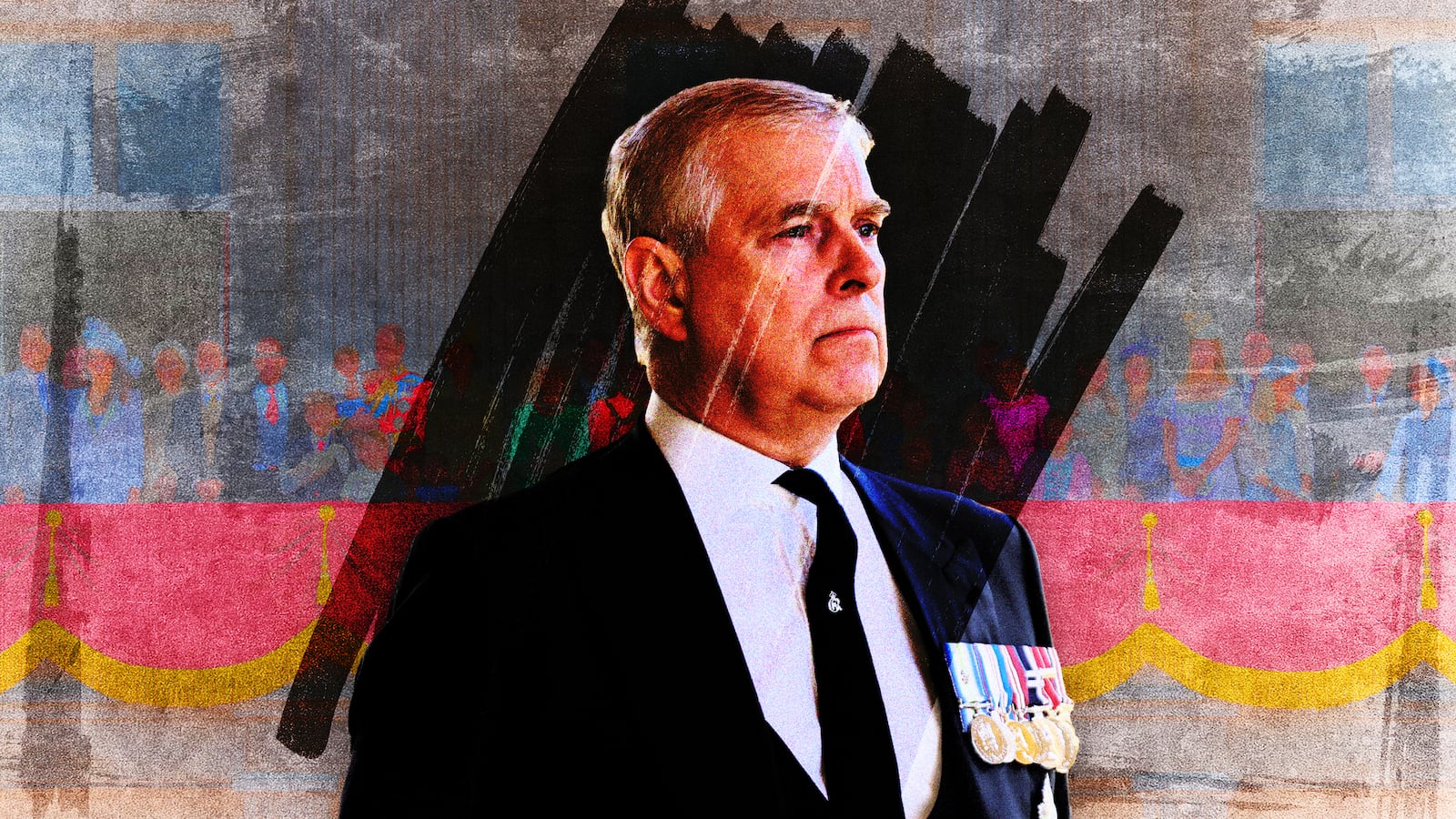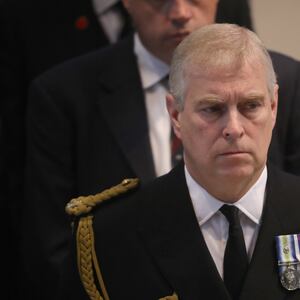Prince Andrew, the Duke of York, has a homophobic joke, based on a famous British nursery rhyme, that most of his friends have heard more than once.
“Oh, the grand old Duke of York, he had ten thousand men,” Andrew says before pausing, and delivering the punch line, “And by God, I can tell you it hurt.”
“It wasn’t particularly funny twenty years ago,” says one source. “But the fact he still comes out with this ghastly stuff, after everything he has been accused of, really shows how arrogant and out of touch he is. The extraordinary thing about Andrew is that he is even more arrogant in person than the newspapers make him out to be.” (A spokesperson for Prince Andrew declined to comment on the veracity of the joke, or any of the matters raised in this piece.)
Some of those old friends still see Andrew—he hosted a grouse-shooting party at Balmoral in the summer and has been invited back to various exclusive pheasant shoots over the winter— but their number is dwindling, especially as Andrew continues to stick to his story that he has never met Virginia Roberts Giuffre, despite the widespread circulation of a photograph of them together, with his arm casually hooked around her bare midriff.
When the picture was taken he was 41 and she was 17. She accuses the prince of raping her three times when she was a teenager and alleges she was trafficked to him. He emphatically denies this, and is presently waiting to see if a New York judge will throw the case out.
“He just says, ‘I can’t remember ever meeting her, I’ve absolutely no recollection,’” the source said.
This of course, is exactly the same tenor of denial he gave to the BBC’s Emily Maitlis in his disastrous Newsnight interview.
This weekend, however, whatever decision is (or is not) made by a New York judge about his motion to dismiss Virginia Giuffre’s civil suit against him, Prince Andrew likely won’t be attending any shooting parties.
In fact, he will be unlikely to leave his home.
Luckily, Royal Lodge is a big place, big enough that his ex-wife can live in her own crenelated wing of it without troubling him too much. The gardens of the gilded cage in which he now resides are also extensive, with almost 100 acres of grounds for Andrew to walk and ride in.
Should he feel brave, he might even venture out on horseback to the adjoining public land of Windsor Great Park.
This risks him being seen by members of the public or photographed by the press, although he is unlikely to run into Prince Edward, who has given up riding in the park, reportedly out of fear of being photographed anywhere near his toxic sibling.
When your own brother avoids going riding in the same 4,800 acre park for fear of being associated with you, it’s really not a good sign. The future king, Charles, never sees Andrew if he can avoid it. His sister Anne has a similar policy.
The only person who still willingly entertains Andrew in the family is his mother, Queen Elizabeth. She makes sure that Andrew is still invited to non-official family gatherings; he was, for example, a source tells The Daily Beast, made welcome with his daughters at Windsor Castle on Christmas Day. When he is photographed driving through Windsor Great Park he is usually en route to his mother’s private apartments in the castle for lunch or tea.
The sovereign is, of course, a fine ally to have, but the simple fact that she will be 96 in April means she cannot be a long-term source of support. And even though she is alive and well, Charles is effectively running the monarchy now. Andrew’s friends and advisers understand all too well that his dream of a return to royal life is improbable, whatever happens with the Giuffre case, so tarnished is his reputation and so poisoned the relationship with his brother.
Andrew, for now, still clings to the hope of redemption. After the condemnation of his interview with Newsnight, he said that he was withdrawing from public life for “the foreseeable future” and he has yet to close that door.
It may be that Charles will be offered the opportunity to slam it shut; after the drubbing that Prince Andrew’s legal team received in Judge Lewis A. Kaplan’s courtroom on Tuesday this week, few now expect that Andrew will be successful in his motion to have the civil suit being brought against him by Giuffre dismissed.
Assuming that the judge—who promised to hand down a decision “pretty soon” and is expected to do so within days—decides that Giuffre’s suit is legitimate, Andrew then has one of three choices to make.
He can go to trial. It is worth noting here that just 3 percent of civil cases, according to a paper from the American Judges Association, are actually resolved by a trial. With all the embarrassment of discovery and deposition that a trial would involve, it seems hard to imagine that Andrew would go down this route if he had any other alternative.
Option two for Andrew, not being a resident of the United States and not having any known assets there, would be to withdraw cooperation from the case and accept a “default judgement.” This would be likely to be an award of millions of dollars in Giuffre’s favour, but she would likely never see a penny of it. Enforcing default judgements made in civil courts against non-U.S. residents is a tricky business, even when they are not lineal heirs to the British throne. But allowing himself to be formally declared guilty of rape by a civil court seems like a distinctly sub-optimal outcome for Andrew.
Which brings us to the third option—an option, which, as The Daily Beast has previously noted, has been there all along: to settle this civil claim out of court. There has been some airing of this option in the British press in the past few days, with one insider telling the Daily Mail there was “the wider pressure and attritional impact to consider.”
Andrew doesn’t have the several million dollars it would require to make all this go away. But his mother, and his elder brother, most certainly do. And it might just be that the price Prince Charles extracts from Andrew in return for his financial assistance is a new statement on his withdrawal from public life, one that substitutes the words “for the foreseeable future” with the single word “permanently.”






